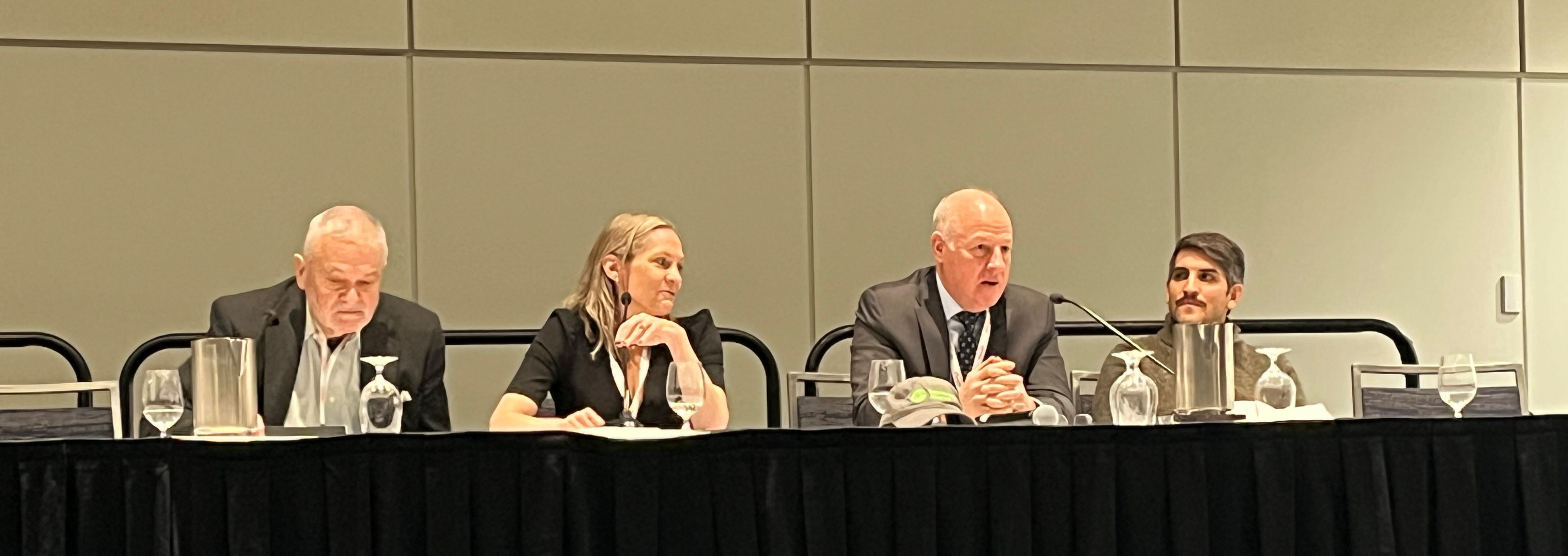ASTMH Annual Meeting 2025
blogWarnings That Anti-Science Sentiments Now Pose 'Existential Threat’ to Health Research
By: Matthew Davis, Burness

Members of a panel probing the surge of anti-science sentiments in the United States and around the world offered a mix of warnings and advice Monday at #TropMed25 as they grappled with how the research community can combat the migration of previously fringe views into the mainstreams of power.
“What is most striking is that not everyone is fully aware that this is an existential threat to our entire field,” said Angela Rasmussen, PhD, a virologist at the Vaccine and Infectious Disease Organization (VIDO) at the University of Saskatchewan who has gained a large following on social media for bluntly refuting attacks on medical science.
Others on the panel employed similarly stark language to describe the current situation, one that has included not just dramatic funding reductions but also skepticism at the highest levels of government about well-established facts. They include the importance of vaccines for safeguarding public health and the significant returns generated by investments in basic research.
“We are facing a sea change in government support that is shocking our colleagues around the world,” said Nobel Laureate Randy Schekman, PhD, a professor of molecular and cell biology at the University of California, Berkeley. “Our leaders must speak up more forcefully.”
David Morens, MD, formerly an infectious disease expert at the National Institutes of Health (NIH), spoke from the vantage point of someone who was an early target of people convinced COVID-19 was caused by a lab leak.
“That was the beginning of all the stuff in which people at NIH got fired,” he said. “Pretty soon there were elected representatives (to the U.S. Congress) turning against science.”
Morens lamented the recent wave of firings that have washed through NIH and the U.S. Centers for Disease Control and Prevention (CDC). He described those lost to the purge as “some of our best people doing our best work.”
He praised the ASTMH leadership for always being “very proactive and very aware” of the dangers posed by the current zeitgeist. He implored rank and file members of the Society to “be as proactive as possible in supporting scientists and making members aware of threats to individuals.”
Peter Daszak, PhD, of the EcoHealth Alliance, offered advice based on the years of investigations and threats he has endured because of his long-term collaboration on coronavirus research with the Wuhan Institute of Virology. He said researchers must develop a large, well-organized network that is primed to provide support emotionally and legally to colleagues who may come under attack. He said the current strategy is to “pick off one person at a time … and then go on to the next one,” something that would be harder to do if there were structures in place to provide organized, high-profile resistance.
Chris Marchesano, staff attorney with the Climate Science Legal Defense Fund, warned health researchers to be particularly wary of a tactic that has been used by those who want to discredit climate scientists: a Freedom of Information Act or FOIA request. The law is intended to ensure government work is open to public scrutiny — and has often been used to help journalists investigate agency actions.
But Marchesano said FOIA requests have recently fueled efforts by anti-science activists to comb through “treasure troves” of information, including years of email correspondence, to “cherry pick” statements in an effort to suggest something nefarious has occurred. He said the practice has had an “extreme chilling effect” on climate science, and that anyone receiving a FOIA request should seek out expert advice for how to respond.
Related Posts
By: Matthew Davis, Burness